WMG News
WMG part of £1.4m EPSRC research project on user-centric and privacy-aware personal data management for leisure travellers
The project’s aim is to develop an innovative user-centric and privacy-aware digital platform that will empower leisure travellers to better manage the sharing of their personal data with travel service providers and other entities and foster new business opportunities for the travel and tourism industry through encouraging better (more transparent and effective) usage of travellers' data.
Developing the user-centric platform based on a holistic socio-technical framework of privacy-related traveller behaviour, it will provide intervention points to effectively nudge travellers to share their personal data more responsibly. The project draws from theories in social sciences, including consumer psychology and behavioural economics, to better explain how consumers make decisions to disclose personal information in exchange for values. Travellers' psychological limitation, such as limited understanding of privacy risks, which may induce irrational behaviour in privacy-related decision-making process while traveling, will also be considered.
Privacy and trust in children’s e-books is first focus for new £1.2m study of our future connected world
WMG at the University of Warwick have secured £1.2m grant funding from the Engineering and Physical Science Research Council (EPSRC) to explore how decentralisation, personal data, and our Internet-connected possessions come together on the Hub of all Things (HAT) platform. The first focus of the WMG team’s project will be issues of privacy and trust in children’s e-books.
The WMG team’s Dynamic, Real time, On-demand Personalisation for Scaling (DROPS) project is a collaboration between academics at the universities of Warwick, Surrey, and the West of England. It will examine the privacy, trust, and identity issues that arise from the development of personalized e-books for children's reading. The researchers’ focus on children's reading is motivated by evidence that shows that despite the value of personalised e-books for learning and reading enjoyment, there is a lack of research that engages with the range of privacy issues that these technologies introduce.
Working with the HAT Community Foundation, a non-profit promoting the use of HAT micro-servers for decentralized, person-controlled personal data, the DROPS project will investigate the technology, business, economic, and legal models of personalisation in a newly decentralised digital economy.
Dodo’s violent death revealed
The famous Oxford Dodo died after being shot, according to breakthrough research by Oxford University Museum of Natural History and WMG at the University of Warwick.
Using revolutionary forensic scanning technology and world-class expertise, researchers have discovered surprising evidence that the Oxford Dodo was shot in the neck and back of the head with a shotgun.
The significant and unexpected findings, made by Professor Paul Smith, director of the Museum of Natural History, and Professor Mark Williams from WMG at the University of Warwick, only became apparent when mysterious particles were found in the specimen during scans carried out to help analyse its anatomy.
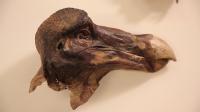 Subsequent analysis of the material and size of the particles revealed that they are lead shot pellets, typically used to hunt wildfowl during the 17th century.
Subsequent analysis of the material and size of the particles revealed that they are lead shot pellets, typically used to hunt wildfowl during the 17th century.
The findings cast doubt on the popular theory that the Oxford Dodo is the remains of a bird kept alive in a townhouse in 17th-century London.
Three senior figures from AstraZeneca, JLR, and Associated British Ports grapple with Brexit’s impact on global supply chains at special WMG event
Three senior figures from Jaguar Land Rover, AstraZeneca, and Associated British Ports will be giving their views on Brexit’s potential impact on Global Supply Chain at a special WMG debate and event at the University of Warwick on Tuesday 8 May 2018.
The confirmed speakers and panel members at the event include:
- Tim Sherwell from AstraZeneca, Regional Supply Director for Europe, and key member of the AstraZeneca Brexit team
- David Leighton from Associated British Ports, Group Head of Corporate Affairs, and a leading player in discussions with government in the UK and Brussels about the UK’s role as a Maritime Nation and the impact of Brexit
WMG establishes new Centre for Applied Artificial Intelligence
WMG, at the University of Warwick, is investing in data driven innovations with a new Centre for Applied Artificial Intelligence. The Centre will enable industry and business to leverage large volumes of digital information to gain competitive insights through Artificial Intelligence methods.
This new centre brings together several applied areas of activity where WMG has an established track record of excellence. It will support the continued expansion of existing research groups in response to the ever-changing landscape of UK industrial needs. Two new appointees, Professor Giovanni Montana and Professor Mehrdad Dianati, will spearhead the Centre working closely with other academic colleagues in Intelligent Vehicles, WMG Cyber Security Centre and the Institute of Digital Healthcare.
Queen’s wedding cake resurrected with scanning tech for 70th Anniversary
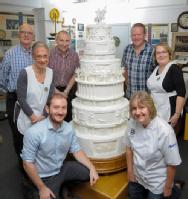 Cutting-edge technology has brought Queen Elizabeth II’s wedding cake back to life in time for hers and Prince Philip’s 70th anniversary, thanks to research by WMG at the University of Warwick.
Cutting-edge technology has brought Queen Elizabeth II’s wedding cake back to life in time for hers and Prince Philip’s 70th anniversary, thanks to research by WMG at the University of Warwick.
Professor Mark Williams at WMG, alongside the British Sugarcraft Guild (BSG), employed 3D scanning technology to recreate a full-sized replica of a cake presented to the royal couple on their wedding day in November 1947 – which was almost totally destroyed by vandals in 2015.
The technology was able to accurately scan the cake to within 0.1mm and reproduce a high-resolution 3D model that was then be used to digitally repair the cake.
Analysing the surviving parts of the cake – an intricate 6ft ensemble, consisting of 6 tiers – Professor Williams was able to discover exactly how it was formed, and to determine precisely how to restore its original grandeur.
There were elaborate pictorial panels on each tier of the cake, the moulds of which had been lost through the decades. However, WMG’s engineering technology recreated these images from the wedding cake, and produced new silicone moulds through 3D scanning.
Oldest known marine navigation tool revealed with scanning technology
Details of the oldest known marine navigation tool, discovered in a shipwreck, have been revealed thanks to state-of-the-art scanning technology at WMG, University of Warwick.
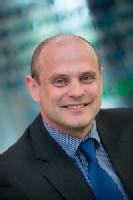 Professor Mark Williams was tasked with scanning the artefact – an astrolabe from the late fifteenth century, used by mariners to measure the altitude of the sun during voyages – which was excavated in 2014 by Blue Water Recovery.
Professor Mark Williams was tasked with scanning the artefact – an astrolabe from the late fifteenth century, used by mariners to measure the altitude of the sun during voyages – which was excavated in 2014 by Blue Water Recovery.
When the team found the object, no markings were visible – they believed it was an astrolabe, but they could not see any navigational 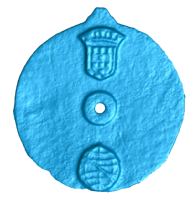 markings on it.
markings on it.
They then approached Professor Williams, who conducts pioneering scanning analyses in his laboratory at WMG, to reveal the artefact’s invisible details.
The scans showed etches around the edge of the object, each separated by five degrees – proving that it is an astrolabe.
These markings would have allowed mariners to measure the height of the sun above the horizon at noon to determine their location so they could find their way on the high seas.
WMG gives free access to tool for companies preparing for Industry 4 – enabling the next generation of manufacturing
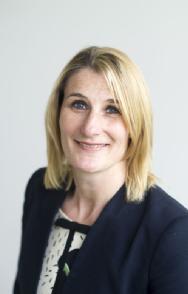 WMG researchers, at the University of Warwick, have worked in conjunction with Crimson & Co and Pinsent Masons, to produce a free to access “Industry 4” readiness assessment tool. It is designed to provide a simple and intuitive way for companies to start to assess their readiness and future ambition to harness the potential of the new cyber-physical age
WMG researchers, at the University of Warwick, have worked in conjunction with Crimson & Co and Pinsent Masons, to produce a free to access “Industry 4” readiness assessment tool. It is designed to provide a simple and intuitive way for companies to start to assess their readiness and future ambition to harness the potential of the new cyber-physical age
The term Industry 4 originates from the high-tech strategy of the German government, which soughtto re-define the role of manufacturing post the global economic crisis. It suggests that we are on thecusp of the 4th Industrial Revolution, a cyber physical age, which will be realised over the next 20years.
Research finds that UK companies that consider both direct and indirect reshoring of manufacturing gain best performance boosts
A new report launched today by researchers at WMG at the University of Warwick, and Reshoring UK, finds that UK companies that consider both direct and indirect reshoring of manufacturing gain best performance boosts and urges companies to consider both approaches when developing their future strategies.
The report will be launched at WMG Supply Chain Research Group event entitled “Realities of Reshoring: A UK Perspective held tonight, Tuesday 26 September 2017, in the International Institute for Product and Service Innovation (IIPSI), WMG, at the University of Warwick.
WMG announce partnership with clean energy solution company Intelligent Energy
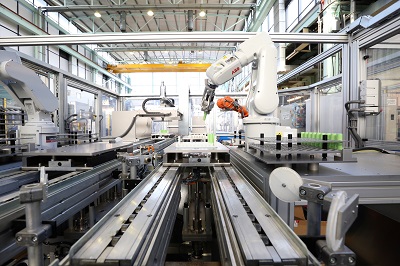 WMG at the University of Warwick are partnering with clean energy solution company Intelligent Energy to help develop manufacturing technologies via an advanced proof of process assembly line to significantly reduce the time to manufacture Intelligent Energy’s latest advanced air cooled fuel cell design, leading to a blueprint for a future fully integrated assembly and test line.
WMG at the University of Warwick are partnering with clean energy solution company Intelligent Energy to help develop manufacturing technologies via an advanced proof of process assembly line to significantly reduce the time to manufacture Intelligent Energy’s latest advanced air cooled fuel cell design, leading to a blueprint for a future fully integrated assembly and test line.
The 3 year, €3.5 million EU funded DIGIMAN programme brings together WMG at the University of Warwick, Intelligent Energy, Freudenberg, Pretexo, CEA Tech, and Toyota Motor Europe in a project pulling together the latest techniques in digital manufacture and automation in stack production processes to create a state of the art fuel cell manufacturing process for zero emission vehicles. The fuel cell’s use of air cooling gives the fuel cell significant efficiencies – particularly by reducing the weight of the device.
